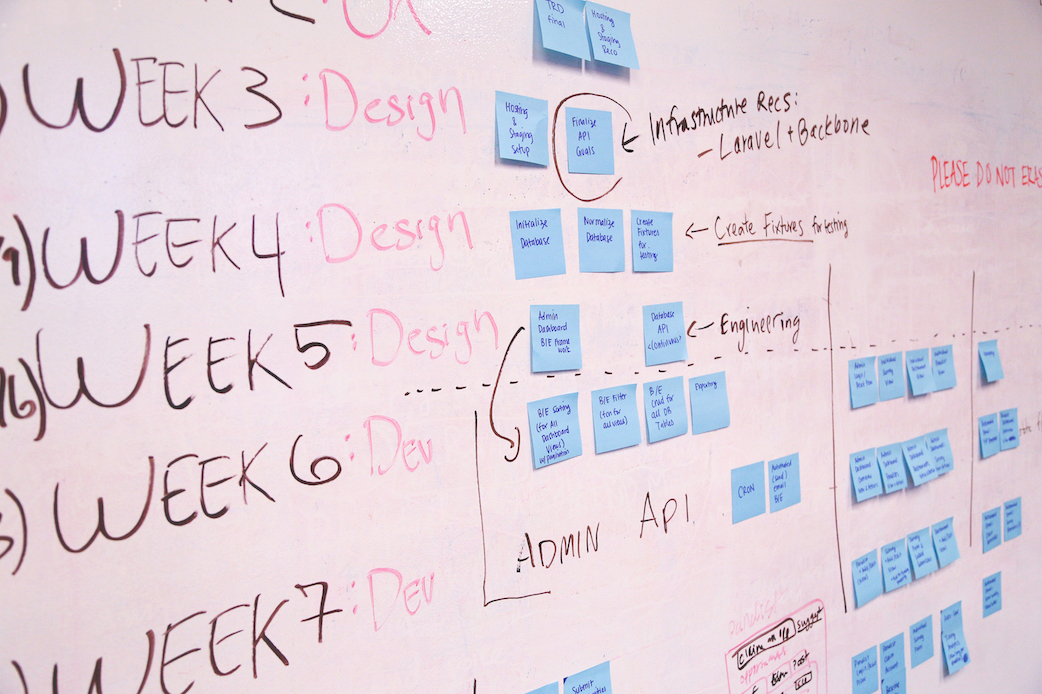Successful projects all have one thing in common: excellent communication. If a team engages in active communication, projects run more smoothly, milestones get completed on time, and details don’t get overlooked. Communication habits often start from the top, and project managers should lead the way to set an example for the rest of the team, and set the overall tone of the project.
If you’re a project manager, and you’re looking for effective ways to ensure communication permeates the team from top to bottom, try these effective methods.
Top ways to promote team communication
Don’t keep people in the dark unnecessarily. Share the project’s vision with your team often.
Most people don’t like being kept in the dark, and if you are the type of project manager that acts like team members are on a “need to know” basis on every aspect of the project, you may begin to face resentment. People like to know that what they are doing has a real purpose and is important, so at the beginning of the project, and at every step throughout, a project manager should be finding ways to communicate the company’s vision. It will help clarify a lot of things for your team and help them feel they are an integral part of something special.
Project managers should be conveying the link between the project and the organization to show there is meaning and direction in everything being done. If you do that – and do it often – you’ll have your team on your side.
Practice active listening
It’s important for project managers to be present when speaking with team members. That means:
- Not letting your mind wander to other tasks
- Not interrupting team members when they are asking questions
- Not making yourself unavailable to staff
- Not recognizing non-verbal signals of frustration
As project managers, it’s important to be in tune with the team and to help each member do their part to ensure milestones are being hit on time and within the scope of the project. When speaking with team members, it’s important to actively listen to their updates or queries and provide context on how to move the project forward. Project managers that actively listen to their team members and engage with them regularly are more likely to be aware of issues before they become real problems that can derail an entire project.
Build relationships with your team that’s based on trust
Trust and respect are the cornerstones of any relationship and they need to be earned, not expected. Project managers that practice consistency, reliability, competence, and loyalty are often well respected by members of the team and are more approachable. If a project manager is able to build a strong level of trust with their team, they’ll be creating an ecosystem where everyone will feel more comfortable proposing ideas (and solutions when there are problems), flagging concerns, and giving advice to colleagues. This ultimately helps a project run more smoothly, even in times of crisis.
Be clear on your expectations and priorities
A project manager should be able to effectively convey their strategy for the project in a way a team can understand, and, ultimately, support. Early in the project, goals should be clearly set, plans should be articulated, and priorities should be highlighted, but, as the project rolls out and unfolds, it’s important to be able to roll with the punches, re-prioritize as necessary, and reinforce expectations. This is the essence of project management, and if you can’t articulate what you want, don’t expect a team to understand what the project outcomes need to be.
Enable collaboration
When team members support and encourage each other, the entire project benefits. Project managers that encourage collaboration make sure that team members don’t being to silo themselves off from the collective goals of the project. It’s important to promote the active sharing of information, ideas, and even assets that help everyone get the job done.
Use technology to help make everything easy
When a project manager leverages technology, they make everyone’s job easier. Technology is perfect for encouraging collaboration and communication and allows team members to:
- Stay up to date with the latest project enhancements
- Be aware of any changes or updates
- Share their thoughts, ask and answer questions and actively participate in decisions making
- Feel like they are a cohesive part of a collective
- Stay organized
- Etc.
There are many platforms, for example, that help with communication, task management, and work organization. Solutions such as Asana, Slack, Trello, and Monday help keep teams on task and in the loop and can even help them share files and gather an overview of project milestones, deadlines, and goals.
Looking for solutions that offer plugins as well can help your team more effectively communicate as well. For example, for project managers that have agile projects that run on Jira, integrating Slack into the Jira system (using a solution like Bitband!) will help both team members and Stakeholders better communicate and have a better understanding of the project’s advancements and upcoming milestones.
If you’re a project manager using Jira that’s looking for a solution that will help you communicate more effectively, look no further than Bitband. We have the plugins to help you make your project run smoothly and with more team transparency. Learn more here.
Want more Bitband insights? Check out:






